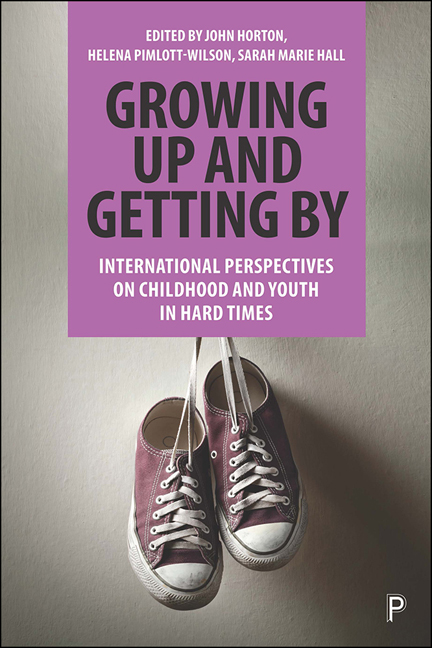16 - ‘If you think about the future you are just troubling yourself’: uncertain futures among caregiving and non-caregiving youth in Zambia
Published online by Cambridge University Press: 18 December 2021
Summary
Introduction
The role of aspiration for youth in the Zambian context is an area that until recently has been greatly overlooked. Like many sub-Saharan African countries, a concern about young people's everyday lives and the challenges they face in the present (Evans, 2012; 2011; 2010; Evans and Becker, 2009; Ansell and Van Blerk, 2004; Becker et al, 2001), has meant little focus has been given to young people's views about their futures. Youth-centred policies were only introduced in Zambia in 1994. Focusing on the position of young people in society, such policies and associated movements attempt to outline the roles and responsibilities expected of these young people as they grow up into adulthood. They seek to ensure the development of a youth who is responsible, assertive and disciplined, seeing them as a resource for the future development of the country – one whose potential should be ‘tapped’ to ensure the Zambian economy continues to grow (MYSCD, 2015; 2006; 1994).
What is strikingly absent however, is any recognition of young people's individual aspirations, the ability of young people to decide their own future, and the need to provide adequate resources and funding to enable them to achieve this. Young people are expected to ‘grow up to full adulthood in consonance with contemporary social, economic and political ideals and aspirations of the nation’ (MSYCD, 1994: 1). This fails to recognise young people's own aspirations, outside of the wider goals of the country itself, which relate not only to growing up and getting by, but to being ‘someone’ one day too. The lack of consultation with young people about what their aspirations are, especially in light of the responsibilities they hold and the social and economic challenges they face, is the key motivation behind this chapter.
By addressing the ways in which Zambian youth view the future, particularly in relation to the education and employment opportunities they seek, this chapter further develops the dialogue surrounding the importance of being able to aspire. It argues that a better understanding of what youth want is key to formulating policies and programmes that can support young people to achieve their aspirations.
- Type
- Chapter
- Information
- Growing Up and Getting By , pp. 309 - 328Publisher: Bristol University PressPrint publication year: 2021



